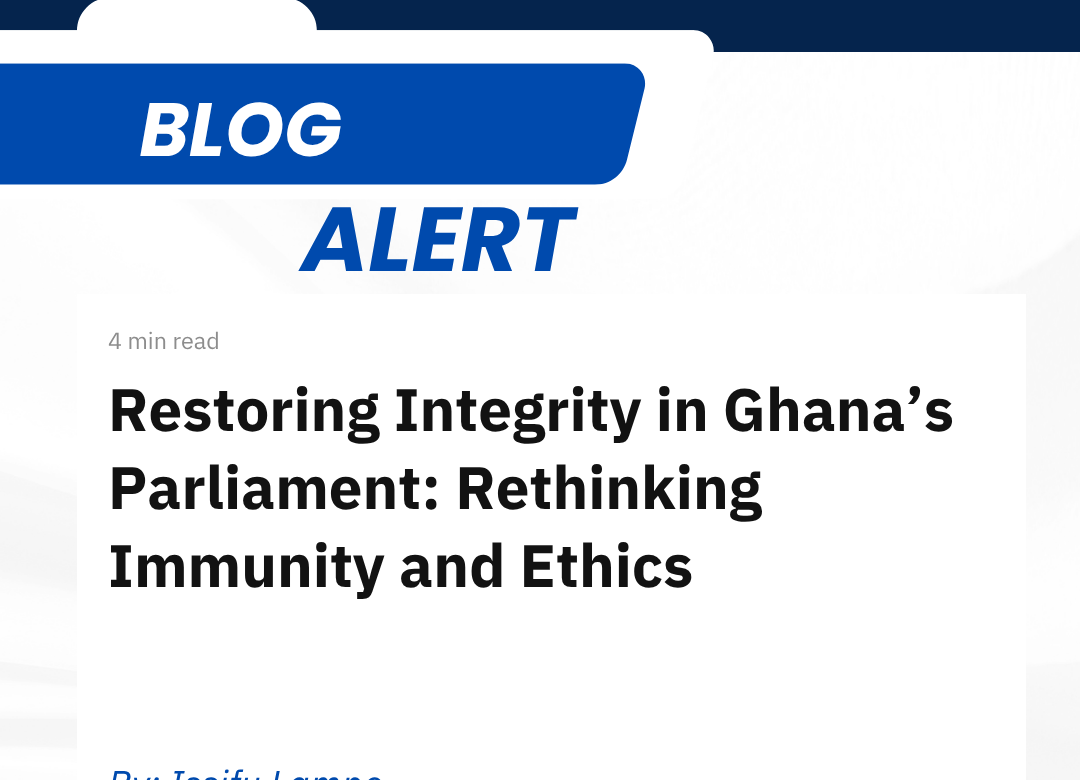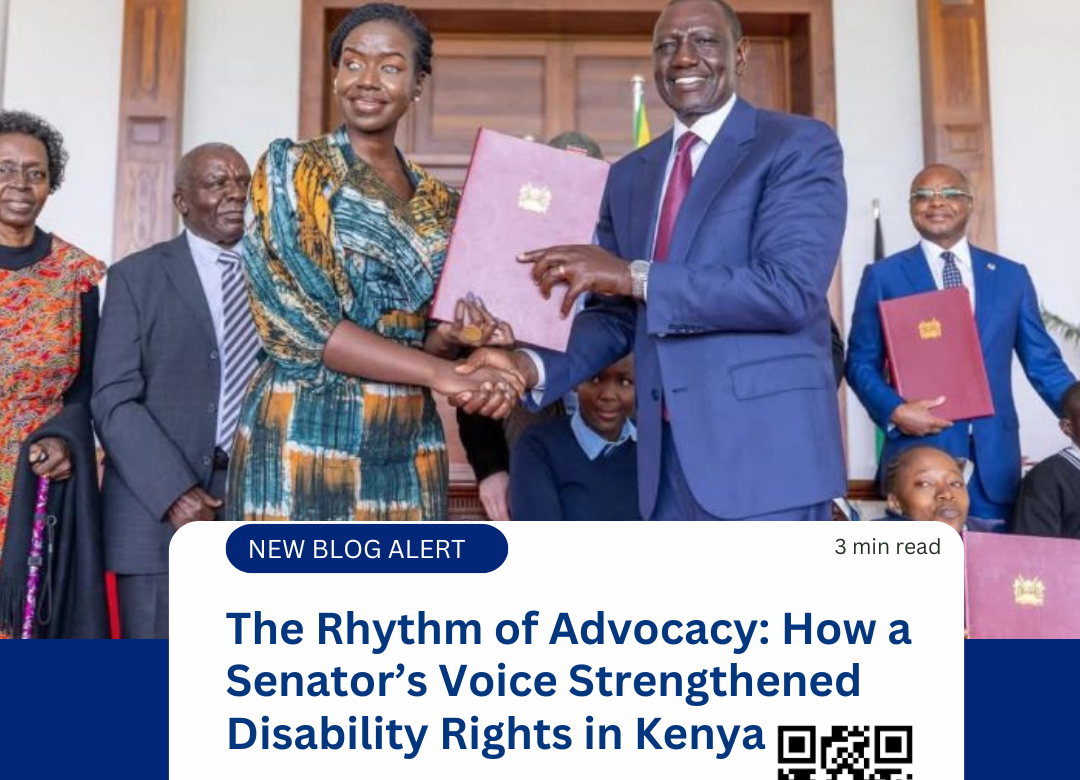By Issifu Lampo, Senior Governance Advisor, ACEPA
Parliament is a cornerstone of any thriving democracy. It crafts laws, provides checks and balances on executive power, and gives voice to citizens. In Ghana, the legislature plays a critical role in shaping national governance. Yet, recent events have reignited concerns over how ethics and accountability are maintained within the House.
Allegations of unethical behavior and misuse of parliamentary immunity by some Members of Parliament (MPs), notably during the 8th Parliament, have fueled public outcry. These concerns go beyond individual misconduct. They highlight a deeper issue: how can Parliament remain independent while ensuring its members adhere to the highest ethical standards?
Understanding Parliamentary Immunity: Protection, Not a Shield for Misconduct
Parliamentary immunity is designed to allow MPs to perform their duties without fear of legal repercussions. Enshrined in Articles 115 and 116 of Ghana’s Constitution, it safeguards free speech and debate within Parliament.
However, immunity must not become a shield for impunity. When MPs invoke this protection to avoid scrutiny for actions unrelated to their legislative duties, it undermines public trust. Like many democracies, Ghana must carefully balance the need for institutional protection with the demand for personal accountability.
The Case for Stronger Ethical Standards
A growing segment of the public believes that some MPs are not living up to the ethical expectations of their office. Incidents ranging from alleged vote-buying in party primaries to procurement-related irregularities and conflict-of-interest concerns have raised red flags.
The 2023 Afrobarometer survey reflects this sentiment: a majority of Ghanaians perceive corruption among their elected officials. These views are fuelled by deeper systemic issues, such as:
- Weak enforcement of asset declaration laws
- The absence of a mandatory Code of Conduct for MPs
- Ineffective oversight mechanisms within Parliament
- Limited public awareness of MPs’ duties and ethical obligations
These aren’t just procedural oversights. They signal a broader disconnect between Parliament and the citizens it represents.
Accountability as a Foundation for Trust
Parliamentary immunity is a democratic safeguard – but when abused, it becomes a liability. Globally, many parliaments grapple with similar challenges. Ghana has a unique opportunity to demonstrate that immunity exists to protect the institution, not shield individuals from legal or ethical consequences.
Five Reforms to Rebuild Integrity
To strengthen public trust and restore credibility in Ghana’s Parliament, the following actions are crucial:
- Clearly Define the Limits of Immunity
Immunity should be limited strictly to legislative functions and should not apply to criminal or unethical acts. - Strengthen Enforcement of the MPs’ Code of Conduct
Parliament has established a Code of Conduct for Members of Parliament. It is essential that the institution actively enforces this code to uphold clear, binding ethical standards for all MPs. - Strengthen the Ethics Committee
The Parliamentary Committee on Ethics and Standards must be given more autonomy, funding, and enforcement authority. - Reform Asset Declaration Systems
Institutions like CHRAJ and the Auditor-General should be empowered to verify declarations and investigate irregularities. - Promote Public and Media Oversight
Civil society, media, and citizens must be supported and encouraged to scrutinize parliamentary conduct.
Conclusion: Towards a More Accountable Parliament
Democracy is strongest when its institutions are accountable, transparent, and trusted. Ghana’s Parliament must continue to be a space for fearless debate and visionary leadership. But it must also be an example of integrity, fairness, and responsibility.
This is not about weakening parliamentary independence. It is about strengthening democracy itself by holding MPs to the values they were elected to uphold. Reforms that promote ethical leadership will not only enhance Parliament’s credibility but also deepen Ghana’s democratic resilience.
Now is the time for a renewed commitment – to transparency, to reform, and above all, to the Ghanaian people.
Read our blog on “Ghana’s Historic First: Will Parliament Seize the Moment for Women’s Representation?”


